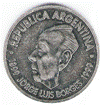Modern Languages and Literatures, Department of

Spanish Language and Literature Papers
Document Type
Article
Date of this Version
2011
Abstract
Arguably the most celebrated woman poet of Spain's Generation of 1927, Champourcin went into exile in Mexico at the conclusion of the civil war (1936-1939) with her husband, poet Juan Jose Domenchina. She lived there until her 1972 return to Spain. Champourcin's poetry evolves from the emphasis on emotions and formal experimentation to mysticism and the remembrance of her past. Her first book, En silencio (1926; In Silence), contains poems clearly influenced by romanticism and modernism. Subsequent poetry collections, such as La voz en el viento (1931; The Voice in the Wind), follow avant-garde tendencies and present a conceptual, pure poetry that underlines the poet's self-determination and creative liberty. During exile, Champourcin finds in religion a solution to her existential agony. After a 16-year lapse, in poem collections like Presencia a oscuras (1952; Presence in Darkness), the poet dialogues with God and yearns for spiritual union with Him. Primer exilio (1978; First Exile) initiates Champourcin's last and retrospective poetry with memories of the Spanish Civil War and her trip into exile. Her final works suggest that human loneliness can be surmounted by faith in life after death.


Comments
Published in World Literature in Spanish: An Encyclopedia. Ed. Maureen Ihrie and Salvador Oropesa. Santa Barbara: ABC-CLIO, 2011. Volume 1. pages 178-79.